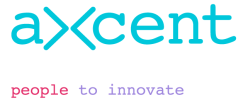BLOCKCHAIN IN INFORMATION TECHNOLOGY

Blockchain, an emerging technology that has revolutionized numerous industries, is also showing a significant impact in the Information Technology (IT) sphere. This innovation, originally created to support cryptocurrencies such as Bitcoin, has evolved into a versatile and trusted technology with the potential to transform the way we manage, store and share digital data. In this article, we will explore the role of Blockchain in IT and how it is helping to shape the future of information management.
What is the Blockchain?
The Blockchain is a decentralized and distributed data structure that allows transactions to be recorded and verified in a secure, transparent and immutable manner. In contrast to traditional centralized databases, where information is stored in a specific location, the Blockchain distributes data between nodes in a peer-to-peer network. Each block of information is cryptographically linked to the earlier one, creating a blockchain (hence the name 'Blockchain'). This design offers greater security and resistance to manipulation, as changing a single transaction requires altering all later blocks, which is virtually impossible.
Security and Traceability
One of the most significant contributions of blockchain in IT is its ability to ensure security and traceability of information. The cryptographic algorithms used to link blocks ensure that transactions are protected from manipulation and unauthorized access. Furthermore, the decentralized nature of the Blockchain eliminates the risk of a single point of vulnerability, which is common in centralized systems.
Traceability is another key benefit offered by the Blockchain. Every transaction is permanently recorded and can be verified at any time. This is particularly relevant in sensitive data management, allowing organizations to track every change, access or sharing of information.
Smart Contracts and Automation
Blockchain has introduced smart contracts, self-executing computer protocols that automatically ease, verify or execute contractual agreements. These contracts reduce the need for intermediaries and can be used to automate a wide range of processes in IT. For instance, they can ease the management of software licenses, automate invoicing and simplify the management of digital assets.
Digital Identity Management
The security of digital identities has become a priority in the digital age. Blockchain offers a decentralized and secure solution for managing digital identities. Individuals can have complete control over their personal information, deciding what data to share and with whom. This approach reduces the risk of identity theft and allows for greater privacy.
Blockchain is appearing as a key pillar in Information Technology, offering a robust solution to challenges such as security, traceability and automation. Its ability to create a secure, decentralized and transparent environment makes it a key technology for digital evolution. As the adoption of Blockchain in IT continues to grow, we are likely to see further developments and innovative applications that will radically change the technology landscape.




